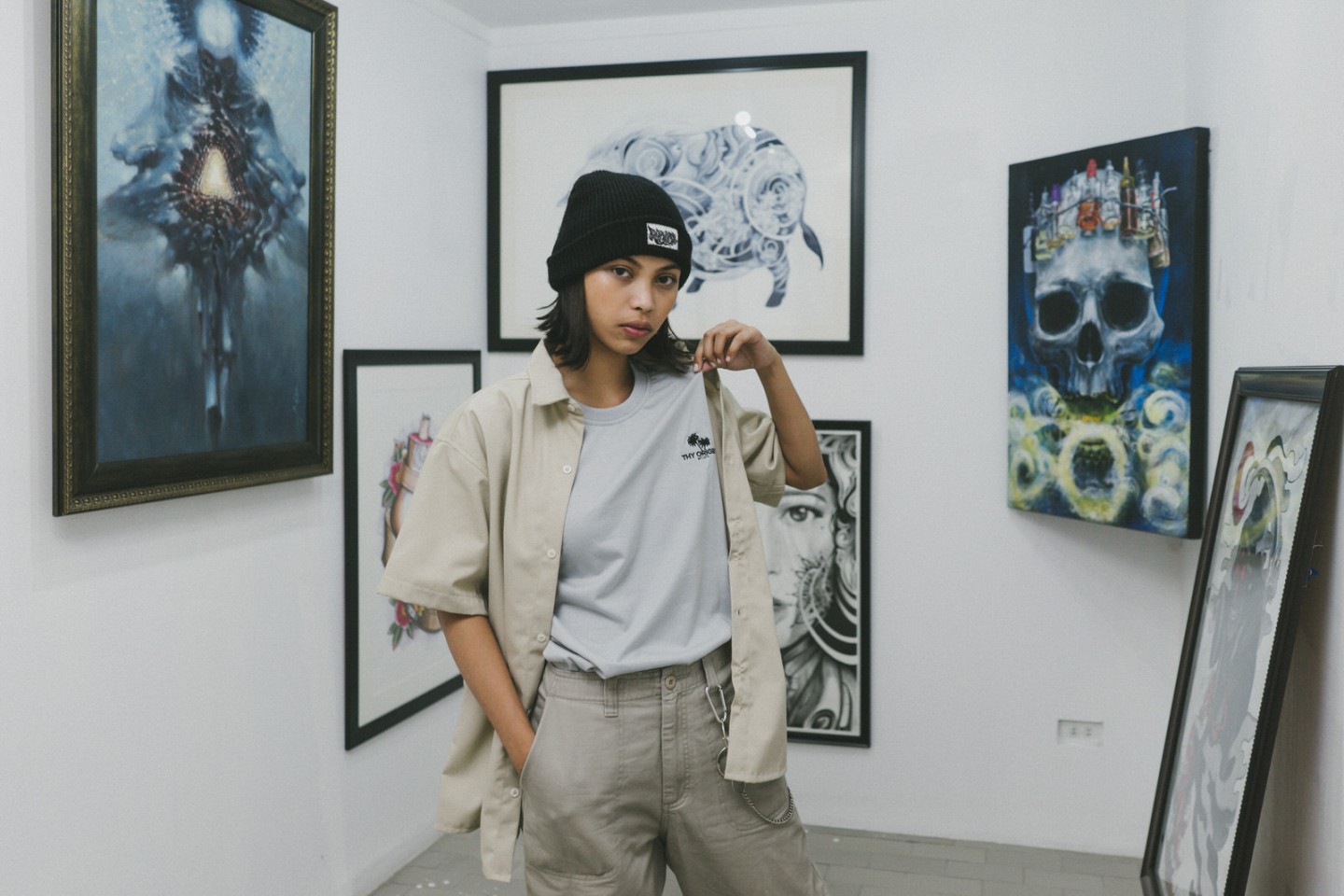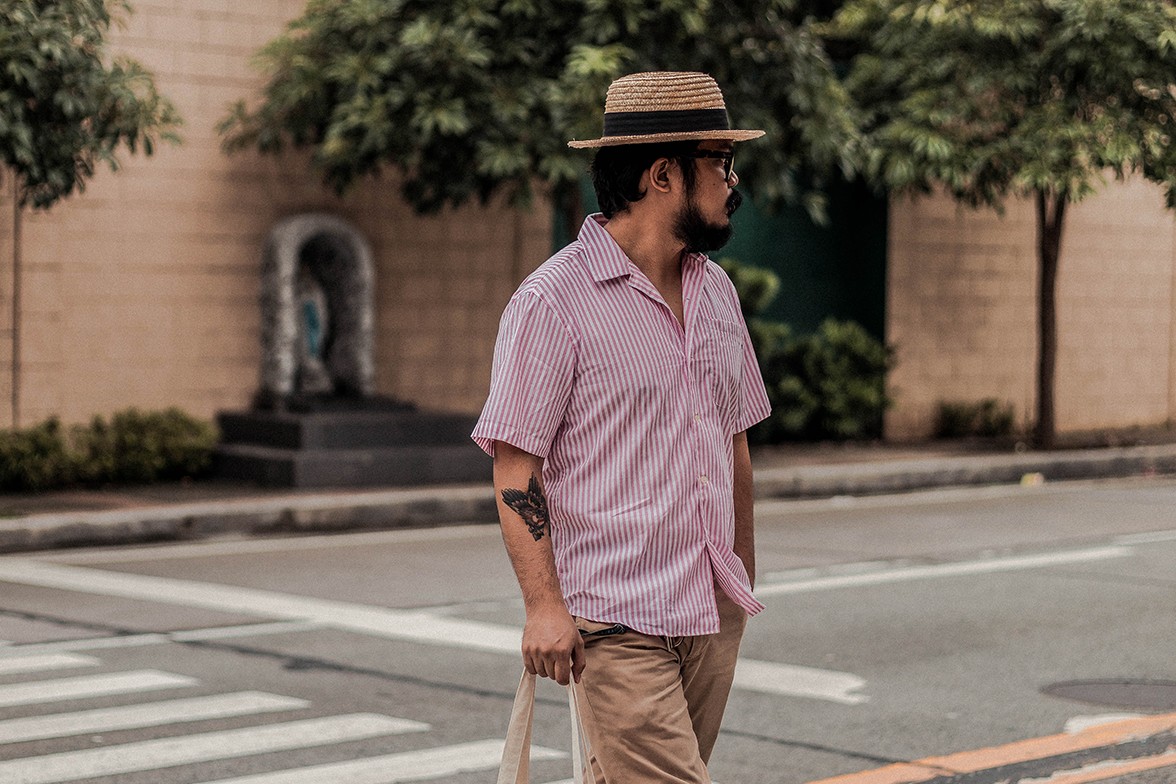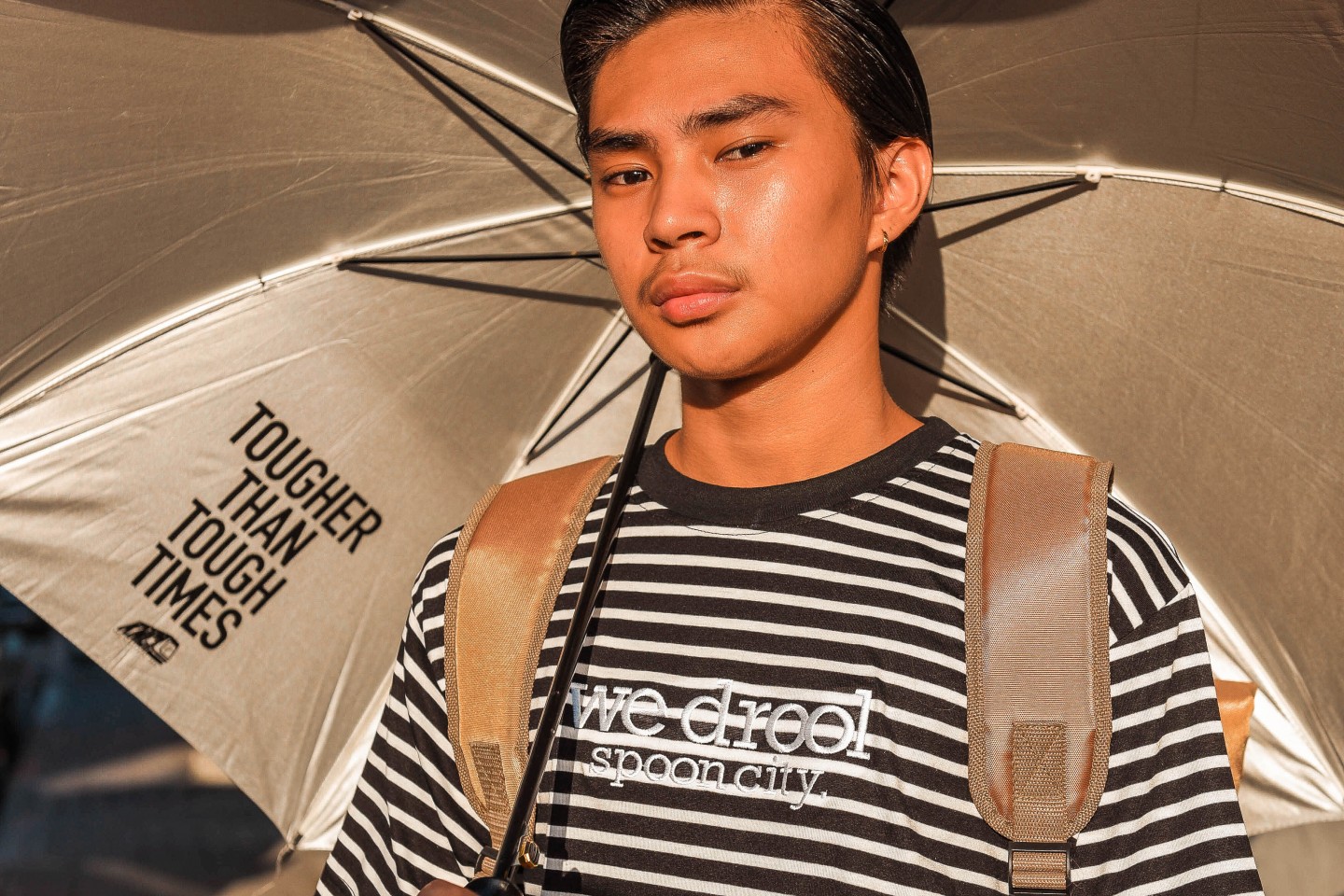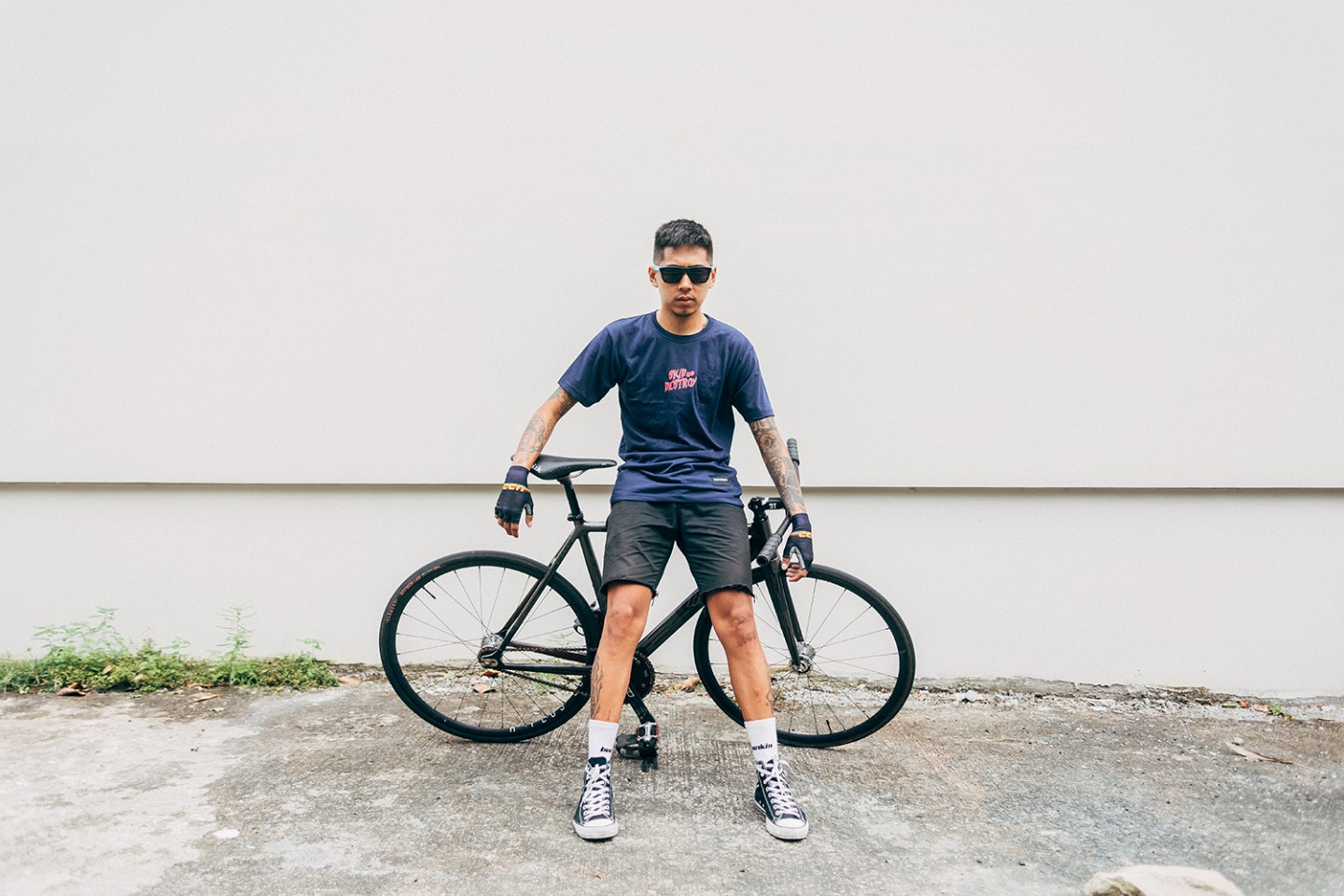When one thinks of the world of Filipino music, its place on the world-stage and its relationship with themes, one may only take a vertical slice of the culture through the lens of OPM Rock and its headliners of the early 2000’s to see the relationship that songs had with culture and its trajectory over the years. With themes of heartbreak, identity, struggle and sensuality, it was no wonder Armi Millare, once the voice of Up Dharma Down, had a firm grip on the zeitgeist that Filipino music held over the airwaves at such a time.
A person of many talents, from long and storied musicianship, to explorative songwriting, to film scoring, among many others, Armi has gained an interesting and dedicated following over the years. It covers the drop of ‘Fragmented,’ which hit on the heels of the highly sought-out alternative OPM Rock sound of the mid-2000’s, to finding mainstream footing with ‘Bipolar’ and ‘Capacities’ (with brief cinematographic clout from anti-love film ‘That Thing Called Tadhana,’ of which the film was said to be inspired by their song ‘Tadhana’) and their final record, the eponymous self-titled finale record.
Indeed, a certain gravitas about the world through the eyes of this veteran musician and songwriter is inferred, but with the monument of her achievements so too is accompanied the acquiesce of her still recent foray as a solo artist. In the years prior to founding the band, her musicianship digs deep roots. On one weekend, we were able to talk about these roots and her stories–getting a good glimpse of her perspective on luck, songwriting, creativity, and taking back her lost time.
What was thought as an encounter with the esoteric, a personality of obscure artistic perspective revealed a laid back soul instead. From anecdotes on how she was able to hand over CDs to Tears for Fears’ Curtis Smith in a chance encounter backstage at their concert to how it took her three albums to officially regard herself as a songwriter, Armi shares all these and more. Read on our conversation to know more.
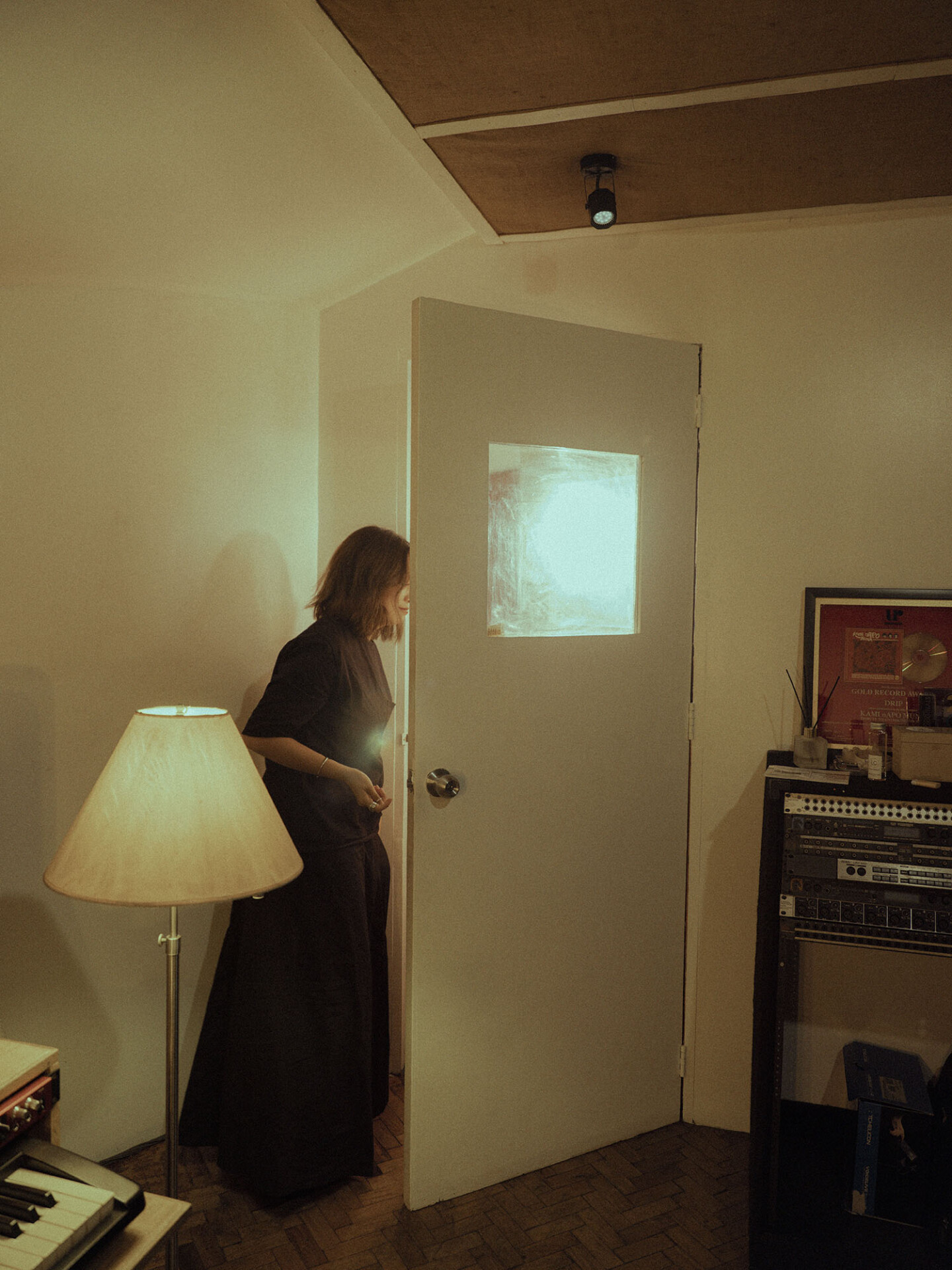
In all your years as a musician, what’s a lesson that stands out?
Energy is relative to success. What goes in, even from others, must come out. This power can even be attributed to the energy of anticipation, too. But energy spent can take a long time to recover, and even more so when it’s a surprise.
It used to take whole months to get the song to a level that I’m comfortable with. Writing, producing, almost everything, but now I have agency, more freedom, and even time. I have time to travel with family, spend time with loved ones, and create work that doesn’t feel like it’s on a timetable. When you’ve spent an entire career finding the best way to redirect your life and spirit to be more productive, you don’t really get out of that unscathed.
Were there times that I felt the anticipation of that constant invisible crowd and my old partners-in-crime? Of course. Do I feel like I need to relegate the process to a matter of public trust? Not at all. The creative process, as much as possible, should be separate from the finished creative work, even the internal experiences of the person. There were times that I wrote solely based on experiences that I found deep within myself, giving more than I could get back.
It’s like you’re having a second chance at everything, literally everything you had before shooting up into the world, and I find myself so lucky that I get to spend time with my loved ones, everyone I hold dear, and yet experience whole new freedom with music, almost as if for the first time. I get to study again. I get to study the way I’ve always intended to learn music—more on theory, less on intuition.
As a musician, which lesson was the most surprising?
Songwriting is hard. Surprisingly hard, even when you love music. I know I wanted to write songs, but what I didn’t know was that focusing on it, doing it, and living it, would then make me a songwriter. Ten years after I asked myself that question and it still wasn’t until the third album that I could don that title: songwriter.
I have a lot of respect for artists who had to stop and take a hard look at themselves. Reassessment and self-critique are backbreaking work. And in that reassessment can often come the realization that there was a great deal of luck involved.
Luck is great to have, but it doesn’t exactly get you where you are; what we do only enhances what luck we may have. Empower your skills, focus on your craft, and be prepared for when luck strikes. Luck is a phenomenon of many things all working together, all at the same time, synchronously. And when it works for you, when you’ve built all these things around you, and raised your standards, that’s not just a happy coincidence—that’s success.
When I was younger, I loved Tears for Fears. They had a show in Manila and I would give anything to see them live. At that point, I already had some experience with the craft and thought that maybe handing them a CD of my work would do anything, you know, why not?
The day came, I showed up, and I managed to get the last limited edition CDs! Next thing I know, I’m backstage, and here comes Curt Smith. He was so nice. Six months later, he tweeted and said among all the CDs he had received on tour, he loved Bipolar. That’s one of the reasons I’ve kept CDs of recent work in my go-bag for a long time. Leave space for luck to happen because amazing things can happen when you let it.
Empower your skills, focus on your craft, and be prepared for when luck strikes.
Luck is a phenomenon of many things all working together, all at the same time, synchronously.
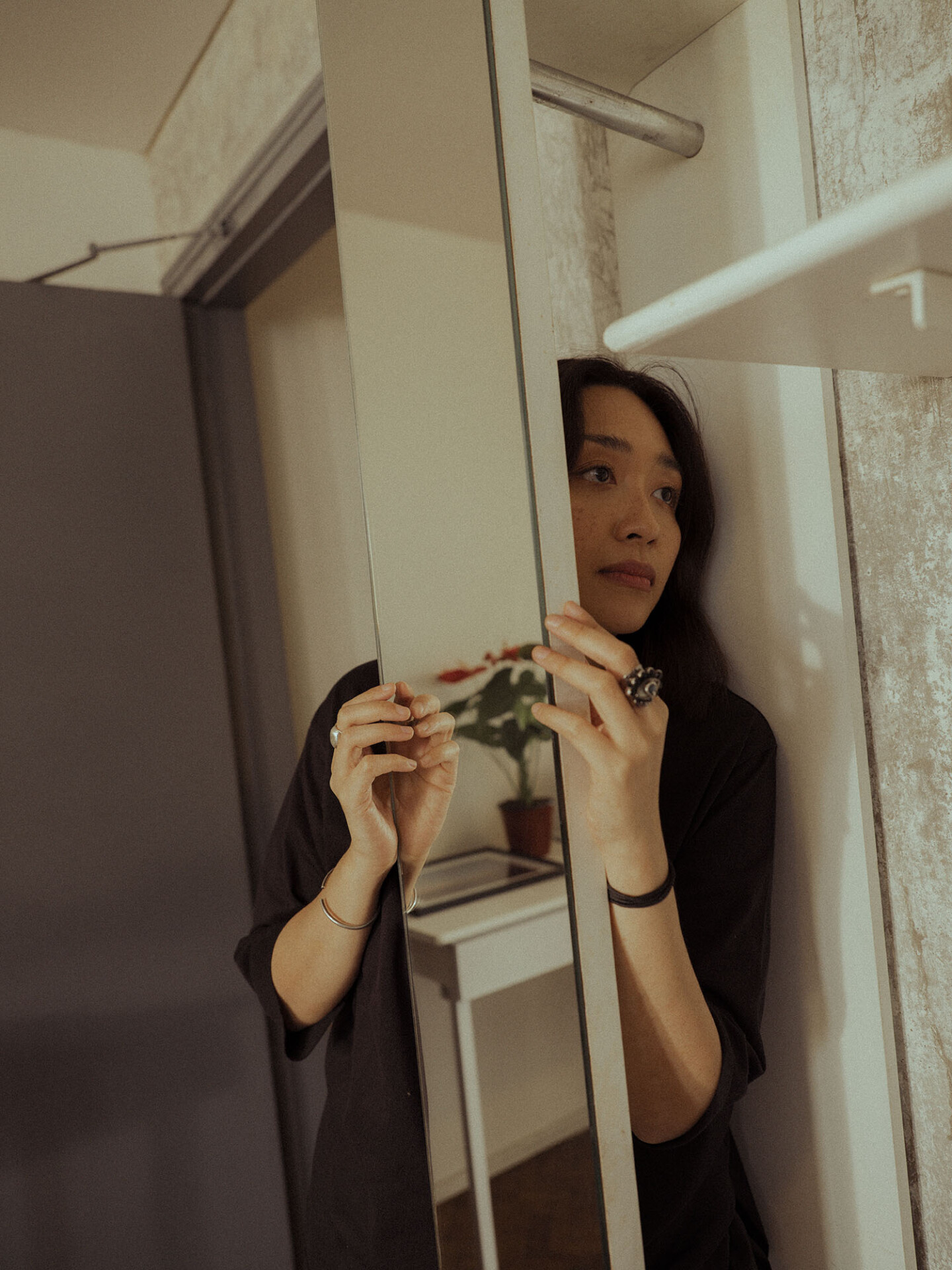
As artists, sometimes playing around with thoughts long enough eventually births a project — what are those stepping stones for you?
There’s a repetitive strangeness that often comes where things repeatedly ‘make themselves noticed.’ After a while, a moment of synchronicity confirms that this coincidence is an idea waiting to be shaped and finished.
Last night, I came upon the idea of ‘hands’ because I kept hearing the word ‘hand’ or something more explicit: the phrase “the hand.” No big deal, right? We all play with our thoughts and ideas a little in some way to pass the time. Cut to later and I’m watching an episode of House of the Dragon, where again “The Hand” is mentioned. That alone was enough to get me thinking.
What if I lost my hand? What if I have lost the agency of my fingers over time? The left and the right? About a few dozen questions after, I find myself pondering on the concepts of femininity and nurturing that side of me–the left side of the body representing the feminine side of oneself, which I have been working on nurturing for a few years now, and only beginning to grasp at the concept of having both a feminine and masculine side in all of us. It’s a spiral of information even in the most mundane of things we can use. Another way is that I don’t consider myself a visual person. Half the time, when I “see” things with my eyes closed, my subconsciousness hones in on the auditory, which expands, magnifies, becoming more and more complex.
When I’m off doing something by myself, the idea will still be there, like it was calling out to me. Some things demand to be revisited—when it comes, listen to them and see what it wants to be.
How has your history with music changed the way you think about the world?
I’ve been developing an interesting relationship with context lately, especially the way we contextualize art in life, in mood, and craft. Since I was young, starting in my teen years, I’ve always been conscious about genres—from the way that it’s used in themes and aspects of storytelling, it’s pretty much affected the way I’ve thought about the world.
I’ve thought about mood a lot, especially the way that it relates to the situation. I’ve found that soundtracks are a great accompaniment for these situations. For example, I had breakfast earlier at this Brazilian restaurant, and I thought about Afro Cuban, Brazilian music and how it changes the experience of dining based on the music we hear at certain points in time. There’s a lot of love for musical accompaniment that just enhances whatever you’re doing, you know. It influences the mood, and vice-versa, even if you’re not playing it to match the context head-on.
Take films for example. Most of the time the music used is played straight. Sometimes, full silence in places where music ought to be. We could illustrate humor, if timed right, with irony even. It’s there to support the work and when made right, able to stand on its own.
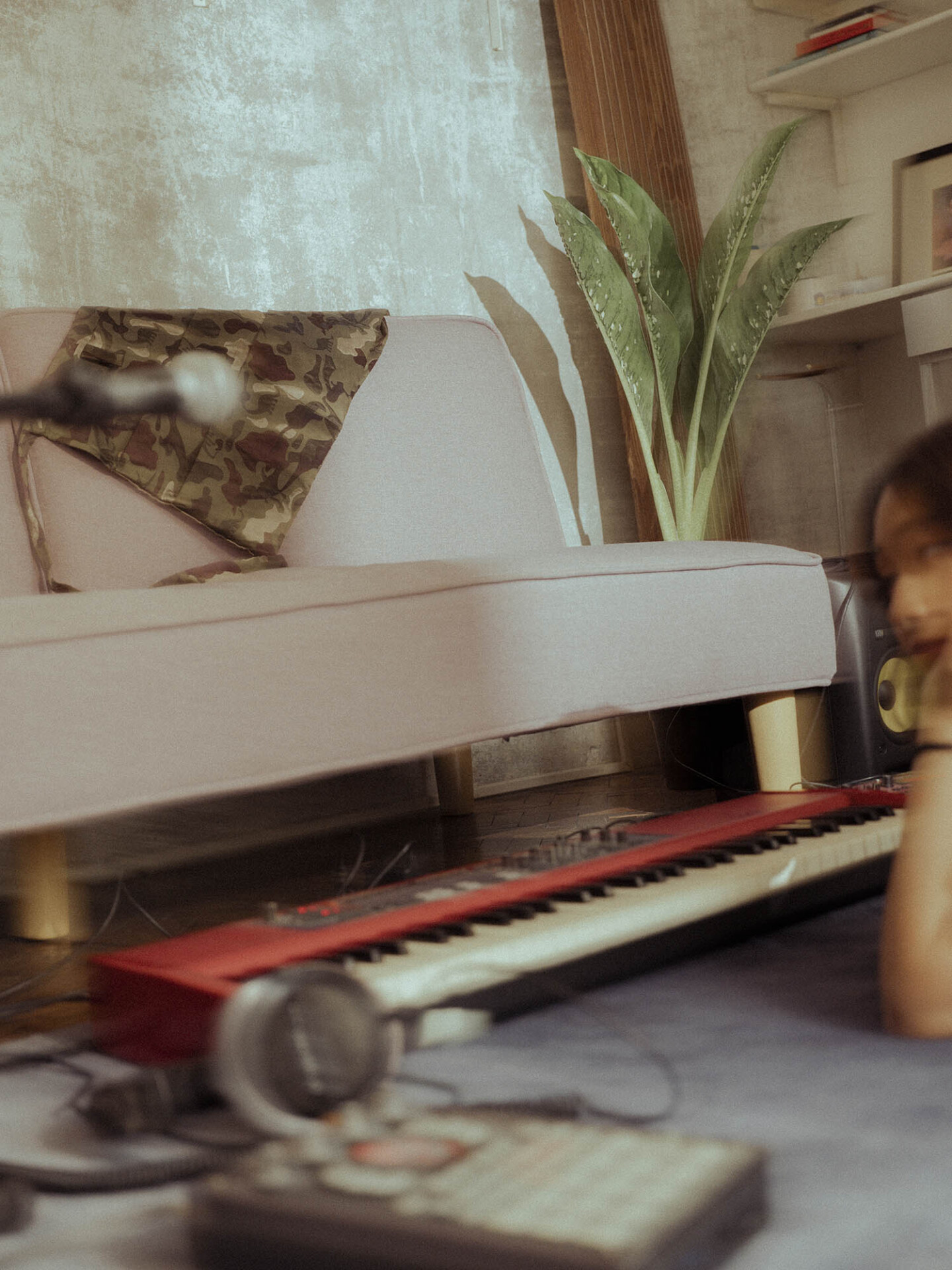
Believe in something, just find something to believe in. It’s about rearranging your life with intention and sense.
You’ve spoken once about your relationship with luck and integrity. What’s one way you’ve found to balance the two with ease?
Luck and integrity are two things, always intertwined, but with characteristics that often couldn’t be more different. As we move through the world, we become more enamored with the relationships we develop with different concepts, themes, places, and people; it can be easy to lose a directive. In the mess of all these things in our life, it can be easy to misconstrue that it was a perfect coincidence with hard work that’s finally paid off.
It’s why I’ve gained this as a maxim: do the right thing. You’ll know when it comes.
Feng shui is a good example. Read your charts, talk to a professional. Now, you can get poor readings, a bad turnout, or maybe something convincing of poor workmanship. Or you can have something that paints you as Michael Jackson, and your charts are amazing with several pillars of luck lined up. All these opportunities, latent and instantaneous skills, resources, and connections! Does that mean it falls squarely to blind luck? There are fixed things in destiny, but there are details that you can change. Believe in something, just find something to believe in.
It’s about rearranging your life with intention and sense. That’s all there is to it. Don’t close the doors on magic, mysticism, or wonder. Of course do not blind yourself to logic and reason. You can believe in creation or trace your genealogy from flagellates. But when you’re here now, as a walking, talking, three-dimensional being with skills and community, recognize that it’s a give and take. Not everything is amazing in the first year, nor the second, what-have-you. At the same time, when blessings come, you take them. Build yourself and count those blessings.
What kind of rest has helped you maintain your artistry while still focusing on rehabilitation and recovery?
When creation is a part of life, every second on Earth is one of change. The same applies to songs. Like creation, change needs to be a big part of the process. Some people write music that lives inside that world and subsists solely within that world. Those types of creators, those artists, live one hundred percent within that world, barely taking time to ever step outside of it. But for those that aren’t like that, there’s the aspect of taking the time to be immersed in the art and then taking the time to take a breather and switch off, but only for a little while.
A while ago I was fixing my eyebrows in the mirror. I was sitting there, probably close to around 10 minutes at that point, just really prodding and brushing, so of course thoughts started to wander. I thought, ‘Man. What am I doing? I should be working instead.’ So, you know, there’s a lot of dancing around those modes, and part of what I think is the successful balance is being intentional with either being this way or that way. At that, I was fixated, I caught myself on it and hopped out of the car.
You have to recognize the moment, as well. I’m at the point where there are things I normally have to attend to otherwise my day’s ruined. What about if you’re stuck? What about those rough days, hard in the slump of your heaviest nights? What then? You feel. In the same way that we use empathy to pick sides of struggles that we identify with, you replicate that same process with your mind.
You can work on some days. On others, you can’t, and on those other days, feel.
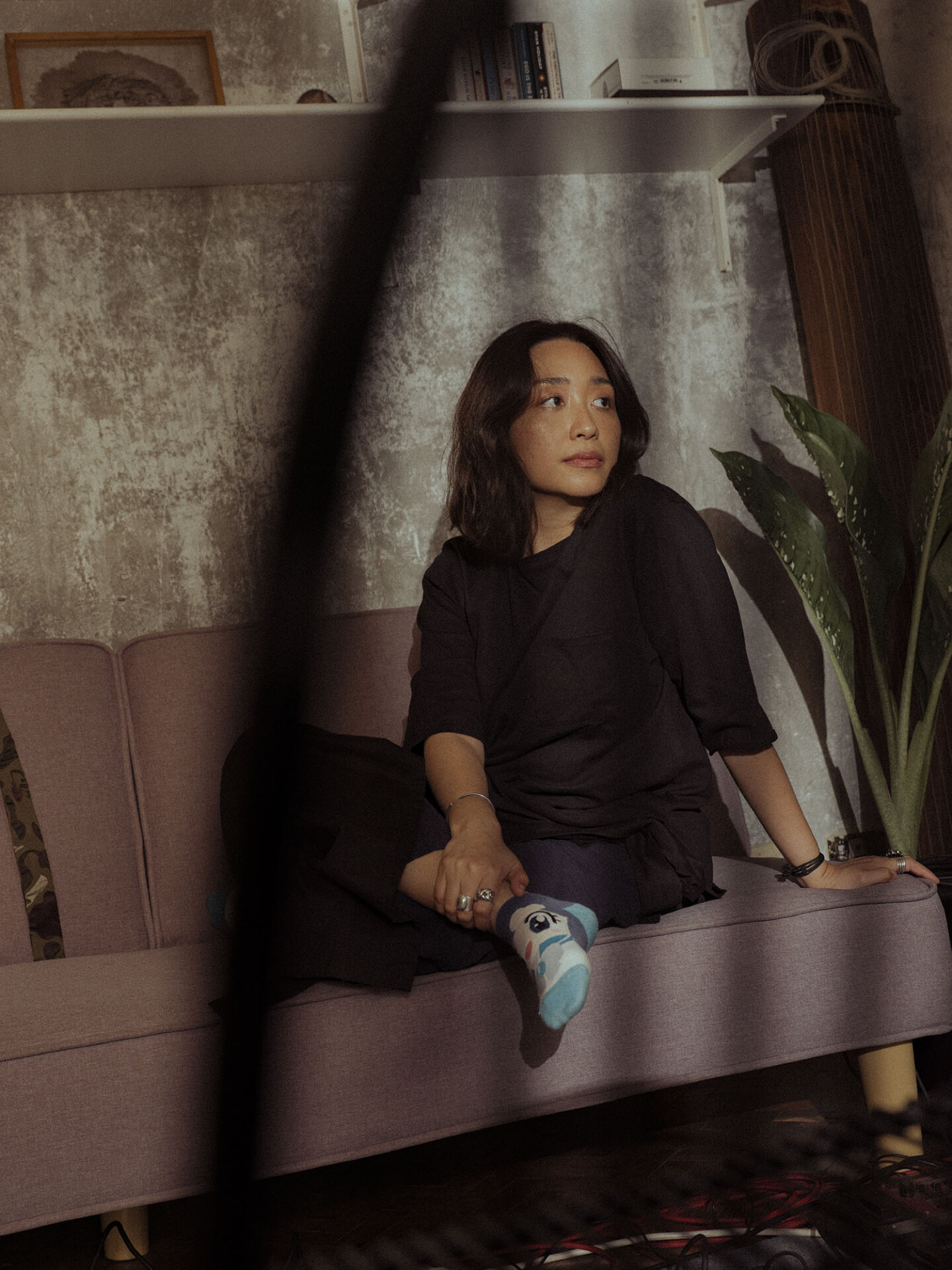
If you were to cite a formative influence on your creative journey, both in music and in the arts, what would that be?
I suppose it all stems from the insatiable urge to learn the origins, the starting points of things—the who’s, what’s, why’s of things. For one, the biggest thing, in my younger days, was the discovery of music school. Like, that was wild to me!
I loved to sing, and I was privy towards musical expression in many forms and styles like radio, shows, on TV, but that solid approach using aspects of the study? Do you go to a school where you solely listen to music? It blew my mind to come into that world, especially as a little kid who heard all their peers talk about growing up to be in all these different professions like a teacher or doctor, or such. That was the driving force for a long time.
Of course, music school would show me a different challenge altogether: songwriting, and to that extent, song-making versus composing. Along the way, songwriting helped spell the journey for me to realize my love for this entire world of art. I was still in high school, hopping between bands, still with this yearning for writing songs despite not knowing how. All those years passed and it wasn’t even until the third album that I embraced the mantle of being a songwriter, a musician. It was that massive–that complex–before I could even consider that of myself. I never knew how I was going to get here, all I knew was that I wanted to fight for it.
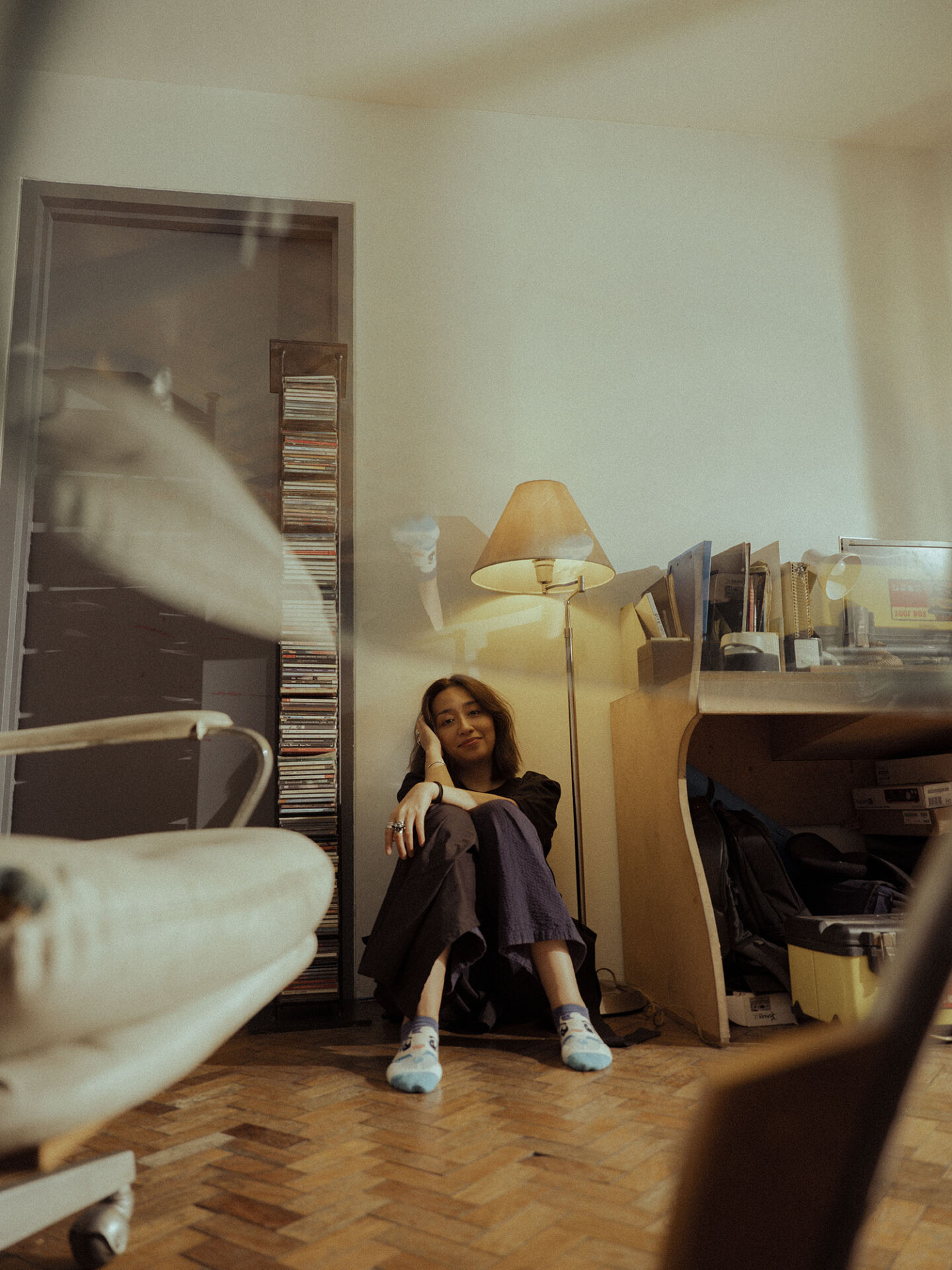
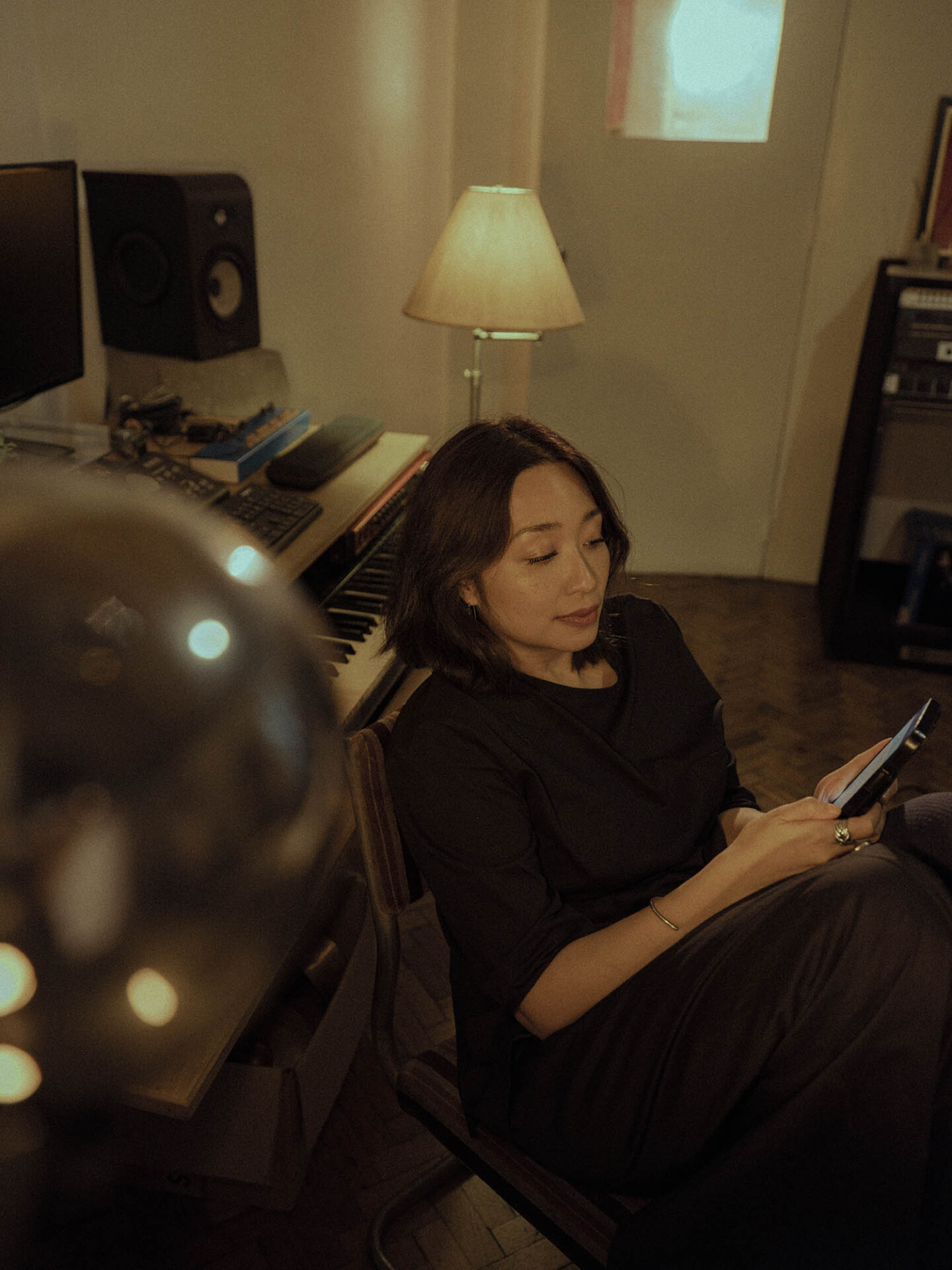
How are you keeping your creativity and artistic spirit nourished these days?
You’re the most creative when you’ve made the time for it. Set time. Set moments between the chaos and the intense focus–whether you’re attending social functions, wrapping up errands, or whatever else–to sit down and address the chaos when you can sit with it.
You can’t tackle a tornado. You’ll spin and spin until you’re dropped in a huge mess that’s going to be hell to unravel. It’ll spin for a while, but at the end, you’ll sit down, and think through some things, and the spirit can flow. At the end of the chaos can be good things, and when you count your blessings you’ll arrive where you precisely should. Find time for yourself.
Say yes to things—the stranger, the better. Like, yes, go to shows, do it spontaneously, go to freaking Nectar for crying out loud. The more you round yourself to things you don’t know, the more dynamic you become. Something happens inside you, molecularly, that you physically could not expose yourself to.
The scariest, though effective, way to engage creativity and artistry is to say yes. Yes, there isn’t an assurance, but you’re the most alive. And that counts the most. Complacency and predictability can put you in a cozy and tight little box, but spontaneity, and again, that room for magic are powerful forces. There’s a thin line between fear and excitement and so much can be gained by just sitting on that border and exploring that gap.
Say yes to things—the stranger, the better. The more you round yourself to things you don’t know, the more dynamic you become.
How does one do “too much” when performing and existing as a musician?
When it stops being fun. With less space to embody what you create and vice versa. Looking back, I learned how to be grateful for what was and at the same time had been made aware of my true limits.
Doing things too much is knowing what’s on schedule, dreading that it comes on, even when you once loved it, and still pushing on with doing it. It means not getting a break. It was only when I started looking into sabbaticals, something I’ve never had in my 17 years since the start of my musicianship, which was what I ached for. It was day after day, song after song after song, arrangement after arrangement after arrangement. Minor complaints became physical ailments. Annoyances turned into allergic attacks.
Of course, you soon realize that none of it is normal. And then the feeling creeps in, and it erupts. Tours are the bread and butter, the mainstay of being a musician. Make music to do tours and do tours to get shows. The problem with this grind is that eventually your body demands to be listened to. You lose sleep, memories — memories, of course, being the last things we have when our bodies go. There was a time that I was afraid of the latter manifesting itself. Legs went numb, arms succumbed, and even one of my major fingers started to act and stiffen like it died, but as a musician you still show up.
It’s fun when you’re young. You have the world ahead of you, your craft, and your profession to propel you to new heights and experiences. But at the end of the day, you’re not your own body; you’re the person inside. Listen to your mind, to your emotions, to what your body demands of you at a certain point.
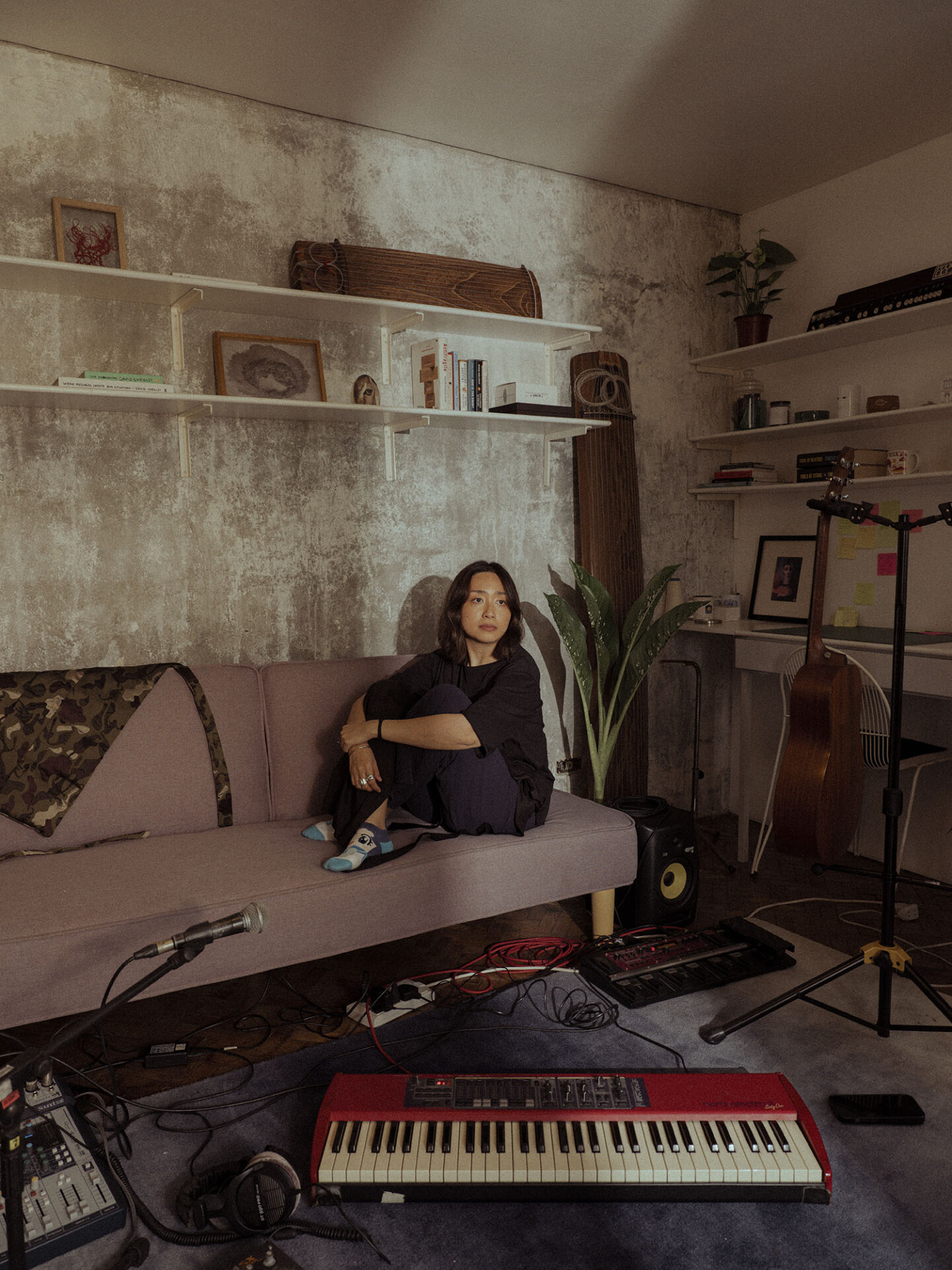
What’s next for Armi?
Live freely and take back lost time.
Being with family at the start of the day, especially in the mornings, makes me realize how things used to be when I was constantly on the grind. It exhausted me. Realize this: you’re enriched by the people who surround you, only furthered by the fact that they also genuinely care for you. This goes both ways, too. What happens when you take that out? What do you live for, then? These days, I’m unendingly grateful for my family.
Going to shows and experiencing other people’s music is what calls me the most. It’s about being able to commit to finding the different performances of artists, seeing them on stage, and meeting them where they are. To start living life, only do what’s necessary and most meaningful to me. To listen more; talk less and move with intention.
I’m here to reconnect. As someone who has dropped many things along the way, due to the mirroring of different personas that I’ve encountered on the path, I’m relearning the aspects of who I am. Due in part to the pandemic, I’ve spurred many thoughts before.“Who am I without my job?”
I’m trying to recreate my world based on what it truly is, not necessarily on the bits and bobs I’ve taken from the many others along the way.
Live freely and take back lost time.
CREDITS
WRITER Jean-Pierre Ditona
MANAGING EDITOR Tricia Quintero
PHOTOGRAPHER Shaira Luna
MAKE-UP ARTIST Joemel Reyes
SUPPORT PURVEYR
If you like this story and would love to read more like it, we hope you can support us for as low as ₱100. This will help us continue what we do and feature more stories of creative Filipinos. You can subscribe to the fund or send us a tip.

